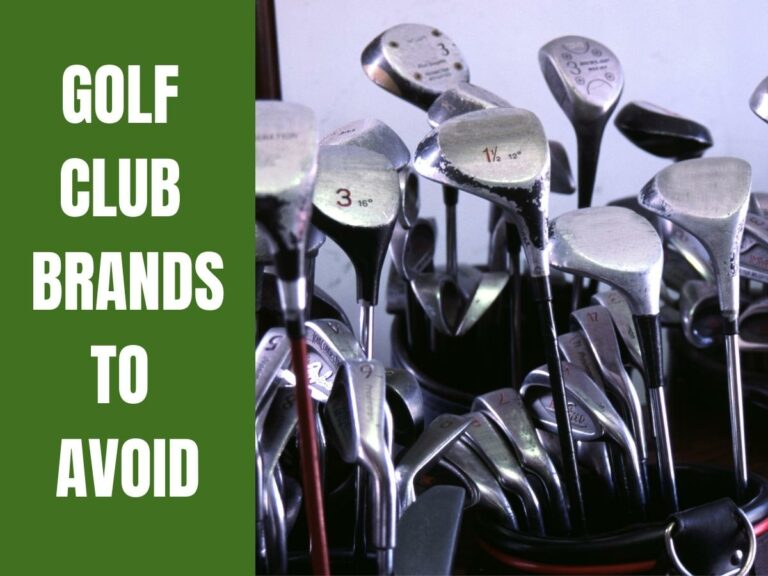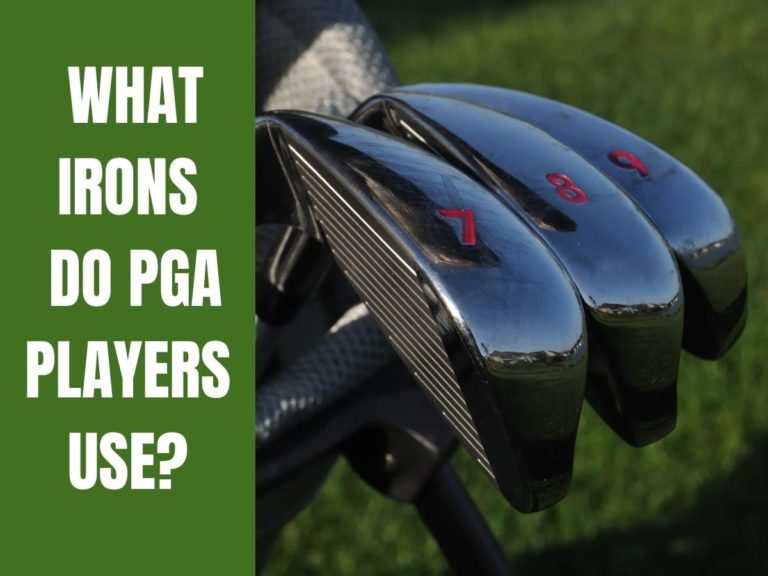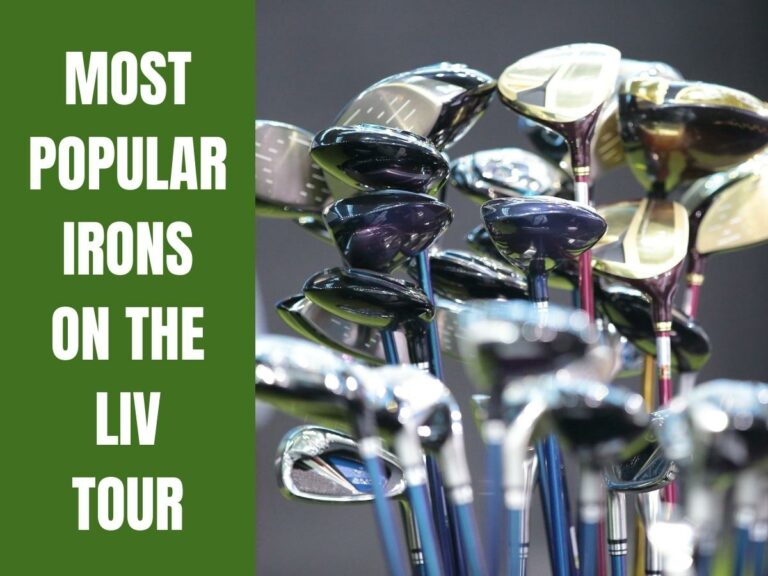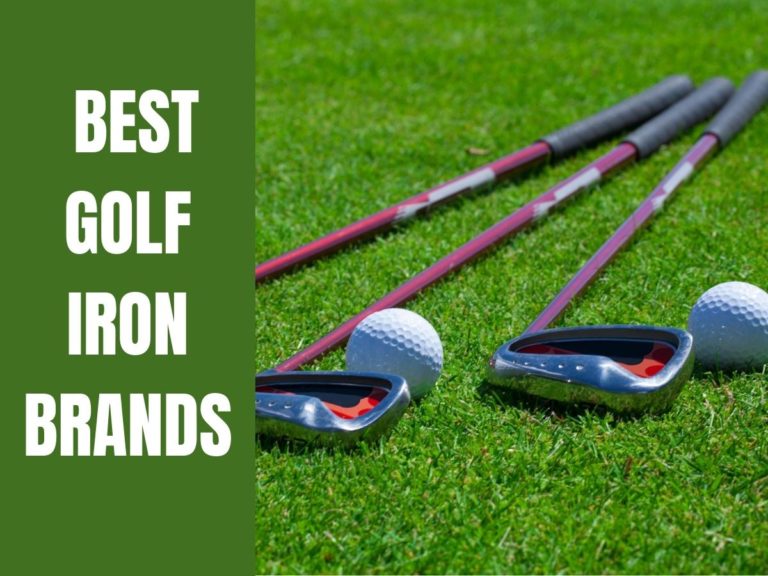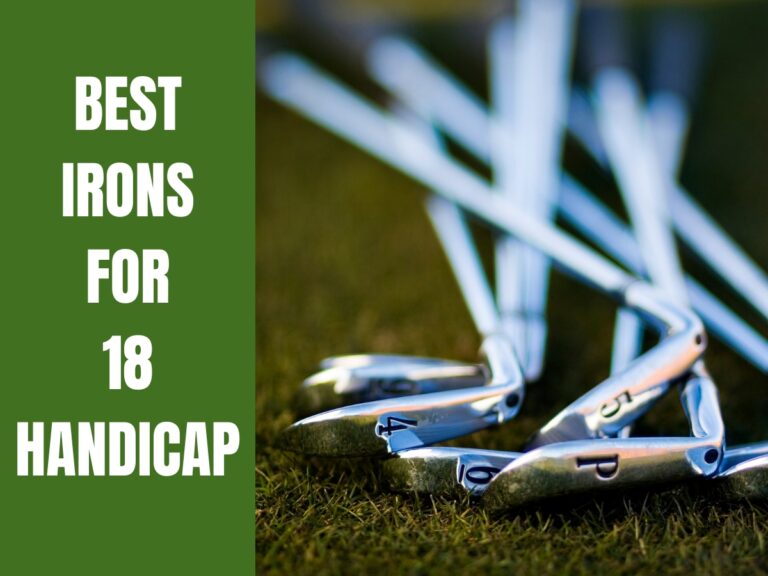4 Best Golf Irons For 7 Handicap Players
As a 7 handicapper, choosing the right irons is critical to the efficiency and enjoyment of your game of golf. Of course, players have preferences, but there are general trends regarding the most popular irons for your handicap. So, what are the best irons for 7 handicap players?
The best irons for 7 handicap players are the Mizuno JPX 921, Srixon ZX7, Callaway Rogue ST Pro, and Titleist 620 MB irons. Selecting the right irons for your low handicap is critical and could mean the difference between a good day out and a terrible golfing experience.
Players know the value of choosing the right irons for their handicap. If you’re as good as a 7 handicap, you’ll know that making the right choice is essential to your effectiveness and enjoyment while playing. This post details my pick of the leading golf irons for low-handicap players.
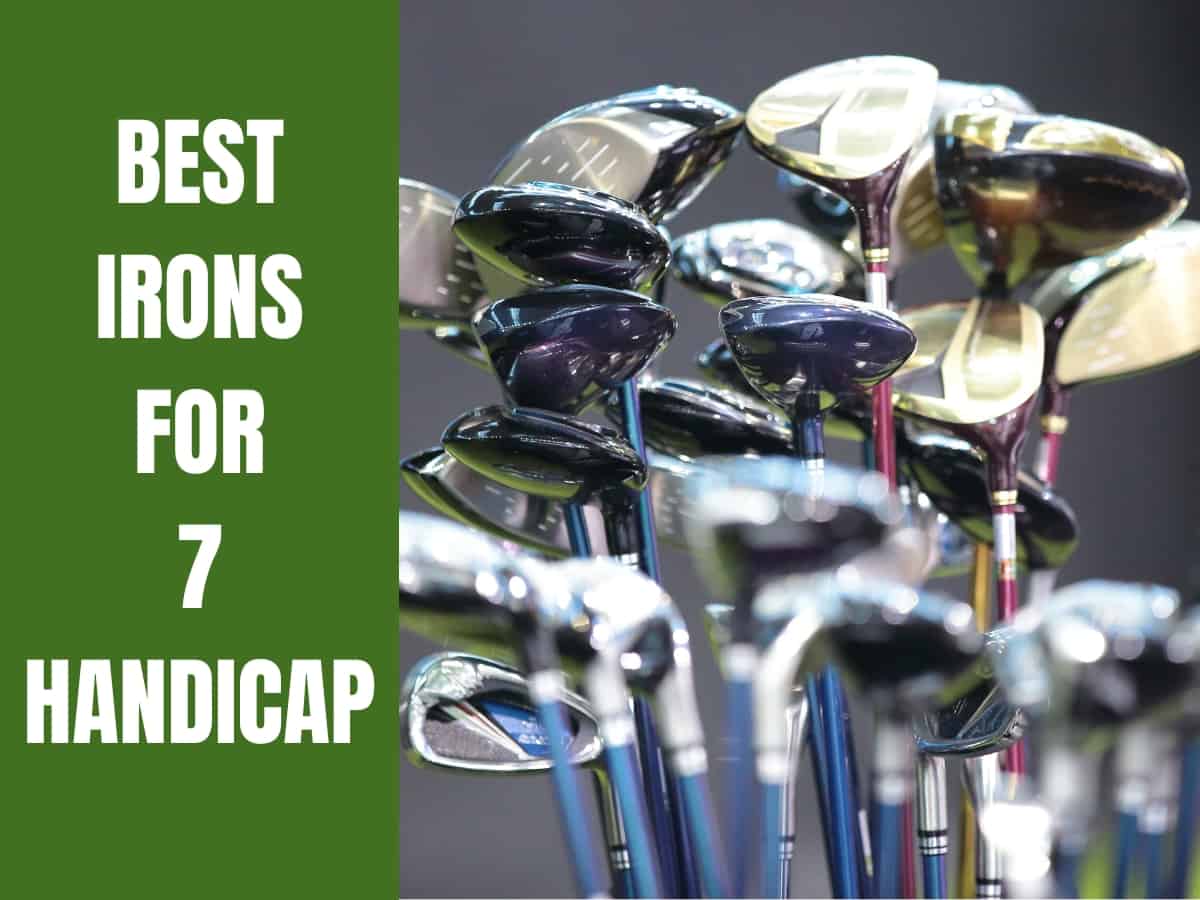
What Are The Best Irons For 7 Handicap Players?
Players with a 7 handicap are looking for irons that help them refine their already exceptional golfing ability. The average golf handicap in the US is 14, so as a 7 handicapper, you’re in the top 20% of men and the top 3% of women.
Whether you are looking for that extra distance, aesthetic appeal, or finesse when striking, your choice of what irons are best depends on your preferences and game.
Golfers all have particular aspects of their game that they want to fine-tune. From turf interaction to higher lift, players have areas they are looking to improve, albeit marginally, in the case of players with a 7 handicap.
The top four irons for players with a 7 handicap are:
- Mizuno JPX 921
- Srixon ZX7
- Callaway Rogue ST Pro
- Titleist 620 MB irons
Read on for more information on each of these products.
Mizuno JPX 921 Forged Irons
For many reasons, the forged is one of the five new branches of this 921 series and is in its own league. First, these competitively priced irons arguably give you the best value for money of all premium irons.
Like Mizuno’s other irons, which are known for being soft and solid, the JPX 921 has the best feel of all irons for low-handicap players.
The Chromoly steel alloy used in the JPX 921 Forged is an improvement on the boron-infused 1025 carbon steel used for the older model, the JPX 919.
The chromium-molybdenum-infused steel requires additional steps in the manufacturing process. It utilizes a milling technique that removes more of the section behind the face, which is significantly thinner than previous models.
The thinner face improves launch by using the Chromoly steel alloy, which has also been incorporated into roll cages and M16 rifles.
There is increased power at the moment of impact, and the thinner face facilitates increased height on the ball, allowing the center of gravity to shift lower and deeper. As a result, there is less toe-biased weighting than predecessors while at the same time improving perimeter weighting.
Even though the head is more compact, this iron doesn’t lose anything in terms of the moment of inertia (MOI) or lack of stability. The increased sole thickness allows for increased stress distribution on the face of the iron.
Apart from the noticeable distance benefit, the sound and feel at impact have secured this make as one of the top choices for lower-handicapped golfers. Furthermore, with the focus on increased distance, they have plenty of forgiveness, an excellent combination for any golfer.
As a left-handed player, I can tell you that this entire set is also available for the leftie in the JPX 921 SEL. This is the first time Mizuno has launched a left-handed iron since the JPX line was produced in 2016.
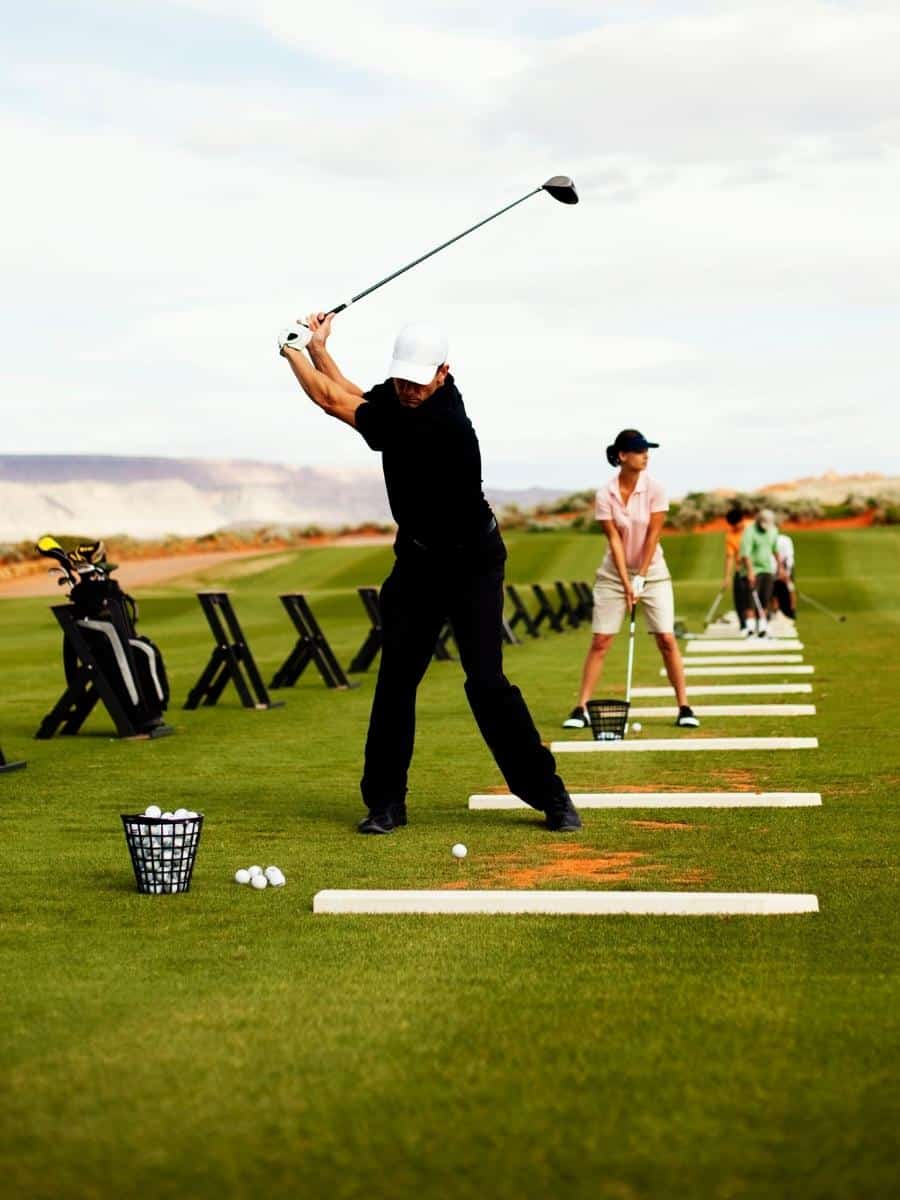
Srixon ZX7
This iron offers lower handicap players increased speed and control with a compact blade shape. In addition, these irons are accurate and consistent and give you added distance and forgiveness.
The main highlight is the level of forgiveness these irons offer, which may appeal to the player who needs to work on a few select shots.
The narrow topline and low offset create an aesthetically appealing shape with heads that are more prominent than other irons of this level. This is the only potential drawback for players who might prefer a sleeker look.
The head size doesn’t appear to make a difference to the impact of the iron itself, as it has excellent workability in various areas.
Srixon has added more mass to the sweet spot and perimeter, which has increased its overall forgiveness on off-center shots. They have also added more grooves, which allows you to add more spin.
They have added more stability by adding tungsten in the toe section of the 7-iron through 3-iron. Using 1020 carbon steel in the body also gives a great feel.
Although players with lower handicaps wouldn’t usually look to irons to increase distance, these elevate your distance and create significant turf interaction.
Their larger heads might be a drawback to players used to smaller heads. But what they lack in aesthetic appeal, they more than make up for in distance and forgiveness.

Callaway Rogue ST Pro
These irons are designed for the low-to-mid single-digit handicap golfer looking to improve ball speed and consistency with shot-making.
The industry-first of combining high strength 450 steel with the Flash Face Cup, new artificial intelligence Face Optimisation technology delivers irons that have increased spin rate consistency, higher launch, and increased forgiveness.
In the Rogue ST Pro, Callaway has consolidated the success of 2017’s Epic range, which featured Jailbreak Technology. In addition, the Pro has improved the overall Jailbreak Effect and is beneficial on off-center strikes.
These irons emphasize stability, facilitated by the 26 grams of tungsten placed in the head, which is great for off-center hits. They have a titanium frame made from triaxial carbon, with a mat finish on the crown.
These irons are for you if you’re looking for irons that offer exceptional forgiveness through top-class technological advances.
Titleist 620 MB
The Titleist 620 MB irons stand out from the others mentioned here because of their minimal design. A progression on the 718 MB, the 620 MB’s sleek design features only the name of the brand on the irons. They have an exceptionally minimalistic look, which may put some players off, but I really like them.
These irons are for the accomplished player who knows what they are doing. They need to be handled by a skilled golfer who is not looking for too much forgiveness. What it gives you in precision and distance, you lose in forgiveness. An off-center hit is irredeemable with the 620 MB.
Unlike the other irons mentioned here, the Titleist 620 doesn’t have tungsten in the sole to help with launch and increase the moment of inertia. So, these are precision irons and don’t provide much disguise or correction for under-par shots.
The scoring irons are shorter than the long ones, and the compact muscle back head is made of 1025 carbon steel. It has great aesthetic appeal, and if you are experienced enough to strike the ball well, this has one of the sweetest feeling strikes around.
Although these irons require the finesses and experience of an experienced player, they are not harsh and do not punish mishits overly. So, these irons will deliver great flight if you’ve got the skills.
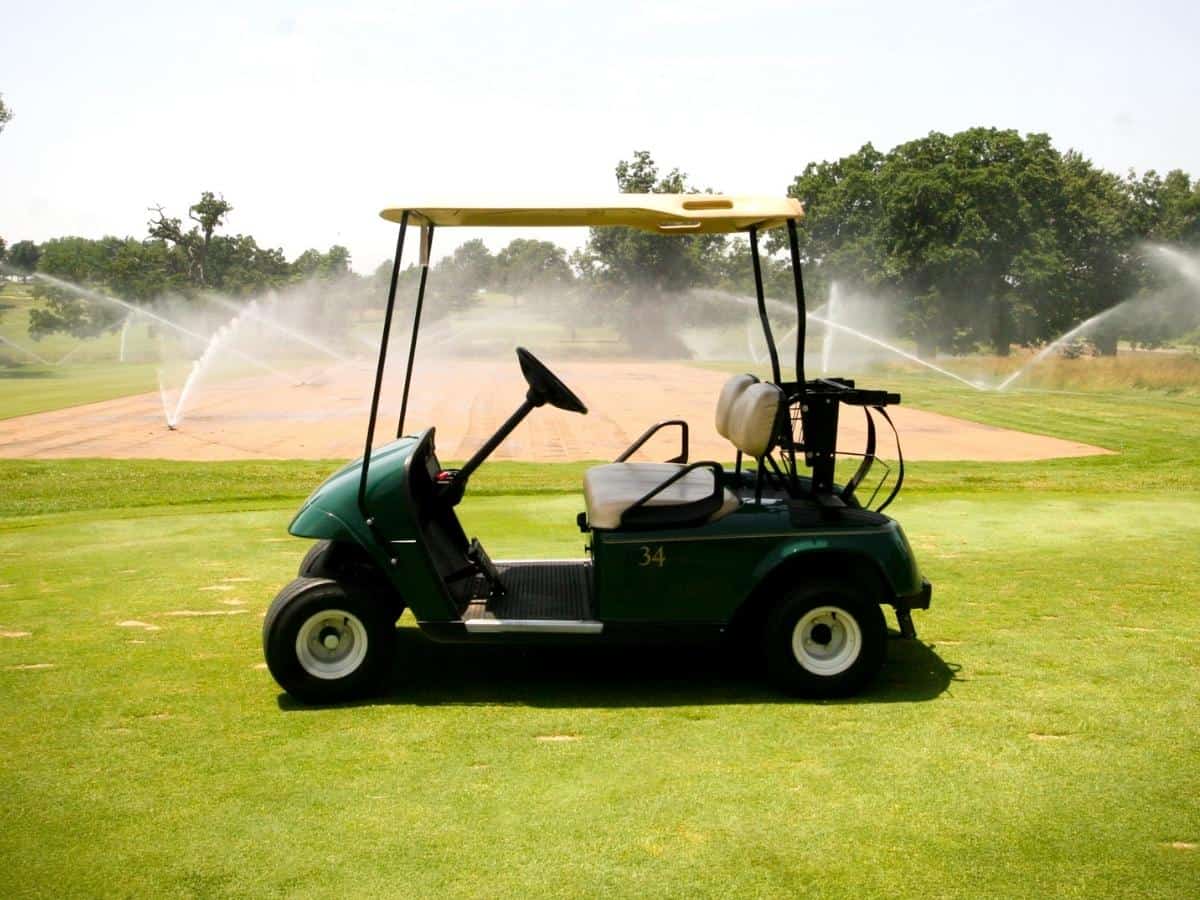
Final Thoughts
Deciding what irons to play with is a critical decision for a lower-handicapped player. My four products listed above will give you insight into the top irons for a 7-handicap player and make all the difference in your efficiency and enjoyment of the game.
Related Posts You May Like:


